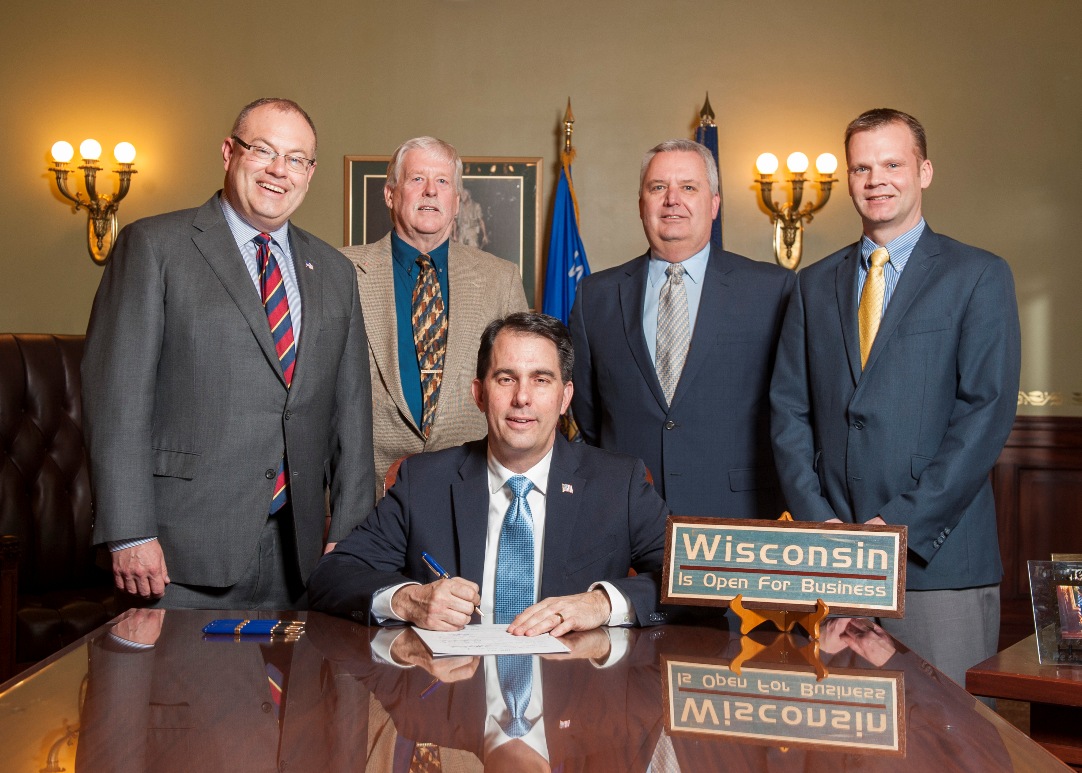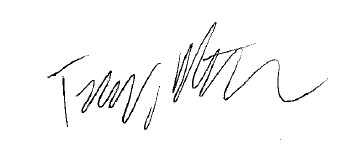|

I can officially report that Assembly Bill 1/Senate Bill 1 is now known as 2017 Wisconsin Act 1! Oostburg Village President Allen Wrubbel (standing center-left) and Masters Gallery Foods Vice President Mark Grasse (standing center-right) joined Senator Devin LeMahieu and me yesterday to witness the signing of this bill into law by Governor Scott Walker. As reported in previous newsletters, this new law paves the way for the creation of about 120 new jobs in Sheboygan County over the next few years and, perhaps, an additional 200 new jobs in the future. Construction of Masters Gallery Foods' new facility, estimated at $30 million, is expected to begin later this spring. Click here to read Governor Walker's full statement!
The legislature has just begun its work to dig deeper into Governor Walker's proposed 2017-19 state budget and make improvements to his ideas. Within a few weeks, our Legislative Fiscal Bureau will publish what I call the "plain-English explanation" that supplements the entire proposal and helps everyone through the process. Next, the legislature's Joint Finance Committee will hold public listening sessions in cities across the state to hear folks' suggestions for improving the bill. Only then will the legislature begin marking up the budget bill piece by piece; typically the legislature votes to pass the final product in June. Overall, I think the Governor's proposals are a good starting point for discussion, but I'm looking forward to hearing from you about what we can improve upon over these next several months of deliberation.
As always, I encourage you to follow my updates on social media or contact my office directly with your questions. Best wishes on the beautiful sunny weekend ahead!

It's About Time
You may have heard that a couple of my Assembly colleagues have proposed eliminating Daylight Saving Time (DST) in Wisconsin and sticking to wintertime clock settings year-round. Frankly, I have concerns about that idea; although certain industries might benefit from having consistent clocks 365 days/year, I think the extra sunlight during the summer months is important both for our state's economy and our recreation.
Actually, the history of DST in the United States is pretty interesting. Germany adopted DST during World War I to try to conserve fuel; the United States briefly did the same in 1918, but DST was unpopular and Congress repealed it after the war. In 1942, President Franklin Roosevelt reinstituted DST nationwide (calling it "War Time"), but it ended in 1945 with the end of World War II. After the war, there was no national standard; states and local governments could (and did) arbitrarily start and end DST. At one point, you could take a short train ride from Ohio to West Virginia and go through seven time changes! Today, 48 states participate in DST, changing clocks forward and back each spring and fall; Arizona and Hawaii (both warm-weather states where more energy is consumed by air conditioning systems during summer daylight hours) stick to standard time year-round.
An alternate idea suggested this week is the opposite of my colleagues' initial idea: staying on DST year-round in Wisconsin instead of staying off DST year-round. Although that might be a better option for our northern climate, it would still put us at odds with the rest of the Midwest and most other states. In any case, the bill authors have indicated that they have no firm timeline in mind to formally introduce the idea into the legislative process at all.
Free Tax Preparation Assistance
Free tax help is available at more than 200 sites across Wisconsin for individuals with low to moderate income, seniors, individuals with disabilities, non-English speaking taxpayers and members of the military. The Volunteer Income Tax Assistance (VITA) program and the Tax Counseling for the Elderly (TCE) program are staffed by volunteers who are trained by the federal IRS and the Wisconsin Department of Revenue (DOR) to prepare basic tax returns at no charge. Most sites also offer free electronic filing. Last year, these sites helped Wisconsinites prepare more than 72,000 tax returns. To find free assistance near you, call the Wisconsin DOR at (608) 266-2486, or dial 211 to reach the United Way.
|

